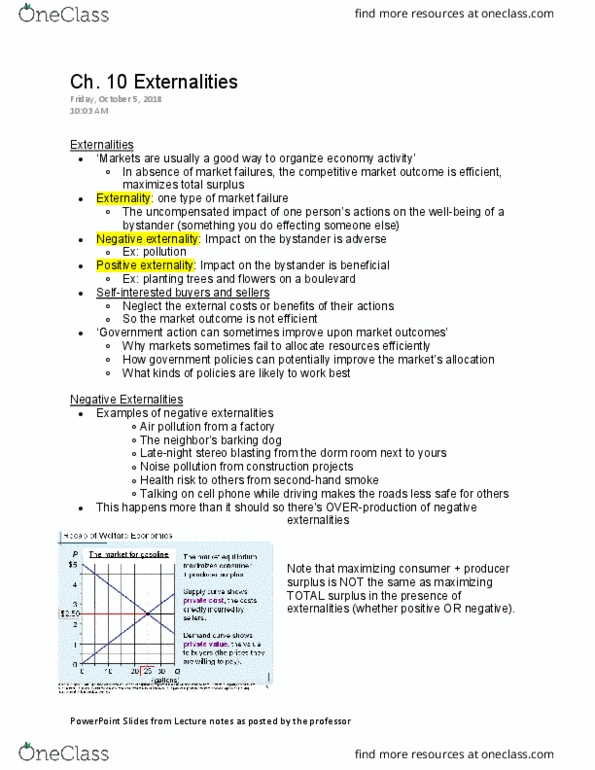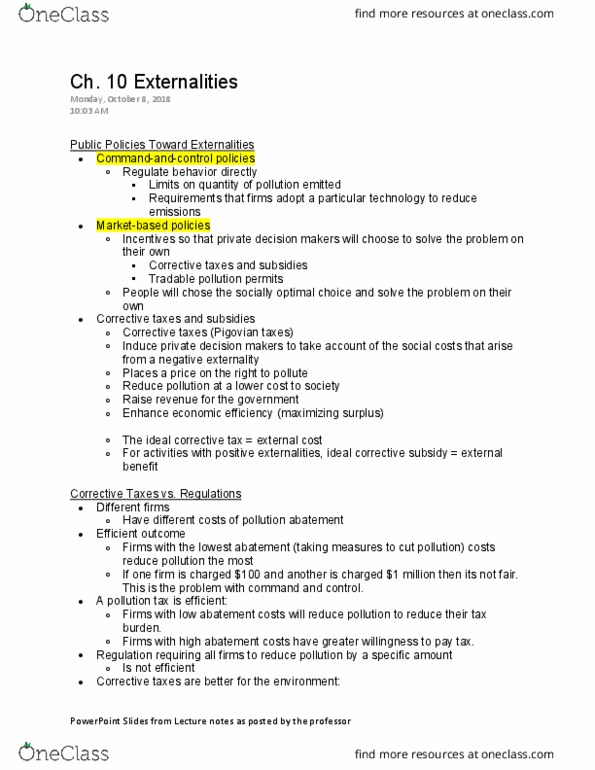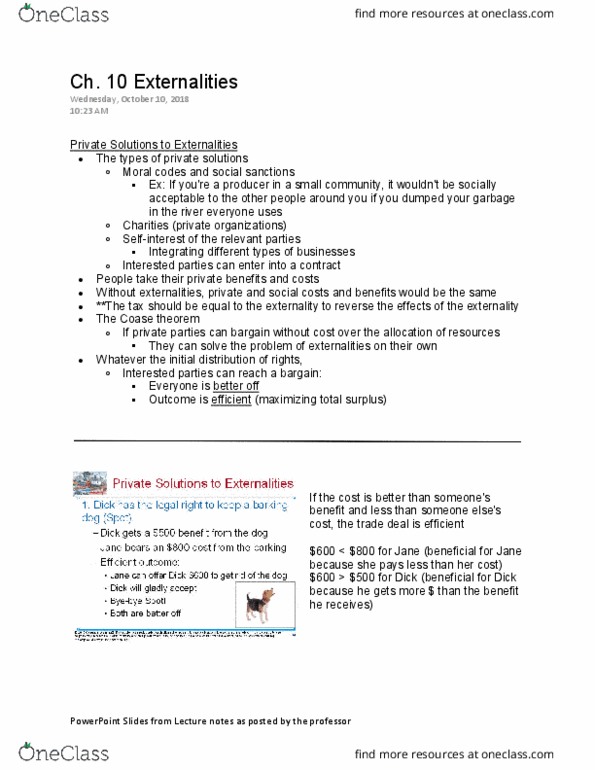ECON 2010 Lecture Notes - Lecture 19: Normal Good, Edmund Muskie, Opportunity Cost
ECON 2010 verified notes
19/47View all
Document Summary
Public policies toward externalities: command-and-control policies, regulate behavior directly, limits on quantity of pollution emitted, requirements that firms adopt a particular technology to reduce emissions, market-based policies. Regulations: different firms, have different costs of pollution abatement, efficient outcome, firms with the lowest abatement (taking measures to cut pollution) costs reduce pollution the most. If one firm is charged and another is charged million then its not fair. Is not efficient: corrective taxes are better for the environment: Powerpoint slides from lecture notes as posted by the professor: the corrective tax gives firms incentive to continue reducing pollution as long as the cost of doing so is less than the tax. If a cleaner technology becomes available, the tax gives firms an incentive to adopt it. In contrast, firms have no incentive for further reduction beyond the level specified in a regulation.




